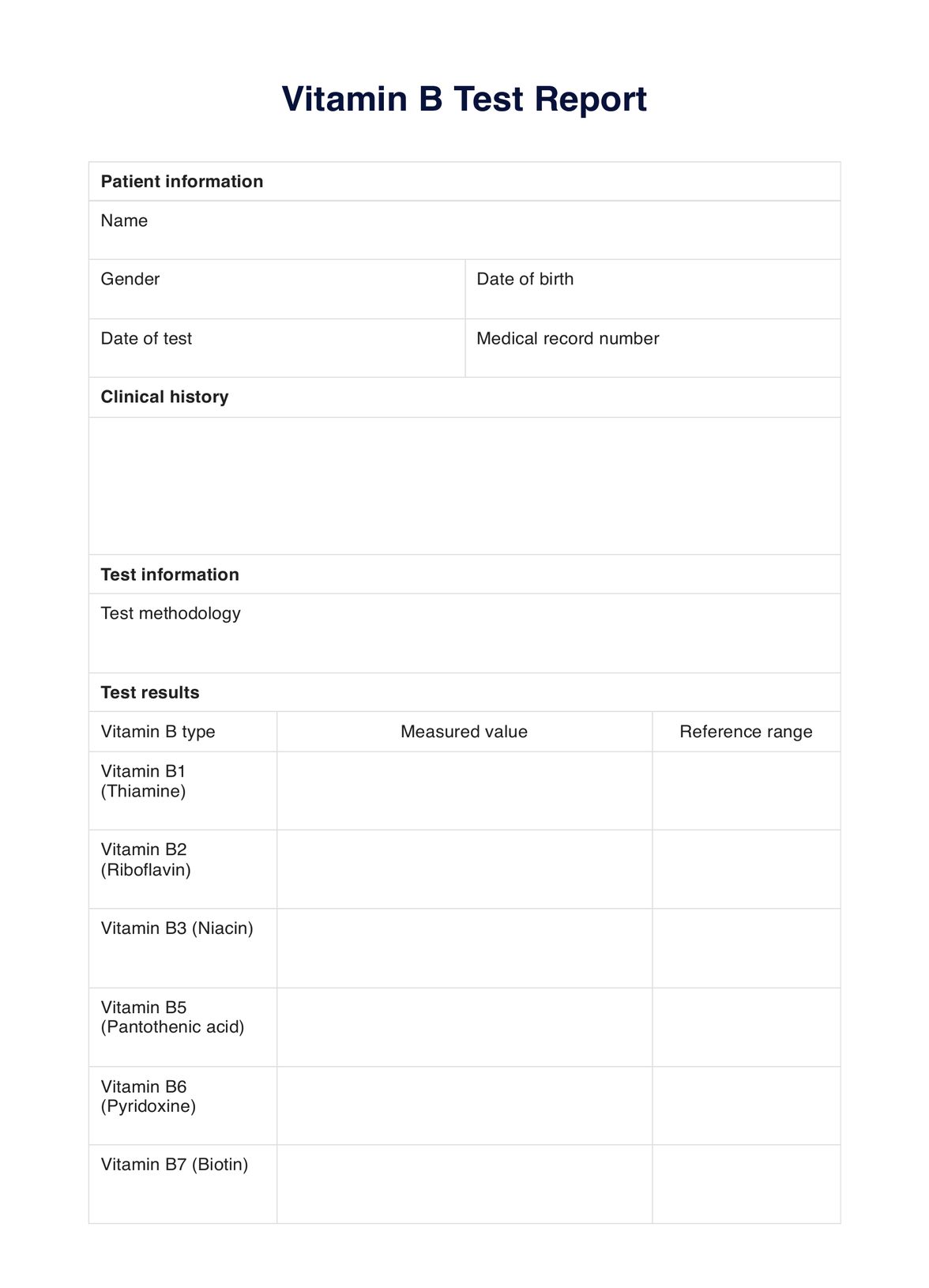A Vitamin B Test measures the levels of various B vitamins in the body, such as folic acid and cobalamin (B12). These vitamins are essential for producing healthy blood cells, supporting nerve function, and maintaining energy metabolism. The test typically involves a blood sample drawn from a vein, although in some cases, a urine sample may be used. Vitamin B testing is crucial for detecting deficiencies or excesses that can lead to conditions like folate deficiency, vitamin deficiency anemia, or other health issues.

Vitamin B Test Reports
Access a free Vitamin B Test Report template to record patient results thoroughly. Use the example to gather insights and make informed decisions.
Vitamin B Test Reports Template
Commonly asked questions
Vitamin B testing is often recommended for individuals experiencing common symptoms of deficiency, such as fatigue, weakness, irritability, memory problems, or tingling sensations. It is also valuable for those at higher risk, including older adults, who may have reduced nutrient absorption, individuals with dietary restrictions, people recovering from surgeries, and people with underlying medical conditions like autoimmune disorders.
The test is usually conducted in a health office or testing laboratory. A blood sample is drawn using a test tube, typically from a vein in the arm. In some cases, a urine sample may be collected for additional analysis. The process is quick and minimally invasive, taking only a few minutes. Results are sent to the ordering healthcare provider, who evaluates the findings and provides a diagnosis or treatment plan.
EHR and practice management software
Get started for free
*No credit card required
Free
$0/usd
Unlimited clients
Telehealth
1GB of storage
Client portal text
Automated billing and online payments











